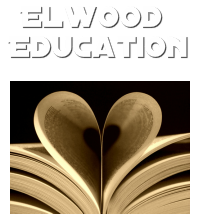College Essay HELP
LIVE SESSION SCHEDULE:Sunday, September 13th | Brainstorming & The Big Picture
Sunday, September 20th | Activities List, Additional Info & 'Why Us'
Sunday, September 27th | Extracurricular + Supplemental Essays
Sunday, October 4th | Reviewing the Whole Application
Live Sessions are held at 10:00-11:30 am Pacific Time (1:00-2:30 pm Eastern)
See the Live Course Syllabus for more information.
Sunday, September 20th | Activities List, Additional Info & 'Why Us'
Sunday, September 27th | Extracurricular + Supplemental Essays
Sunday, October 4th | Reviewing the Whole Application
Live Sessions are held at 10:00-11:30 am Pacific Time (1:00-2:30 pm Eastern)
See the Live Course Syllabus for more information.
How to Write a Super Essay (And Save Tons of Time Drafting Essays)
By Ethan Sawyer info@collegeessayguy.com via m.convertkit.com
Sep 9, 2020, 12:54 PM
Hey there,
One of the most daunting aspects of applying to college is the sheer number of essays students have to (wait, get to!) write.
What do I mean?
Say you’re applying to eight to ten schools. Many colleges have anywhere from one to five (hi, MIT!) supplemental essays. Quick math tells us that’s between eight and (let's say) thirty, college essay prompts to respond to. And that’s after you write the 650-word personal statement for your Common App.
THAT’S CRAZY.
But guess what?
YOU TOTALLY DON’T HAVE TO WRITE 30 ESSAYS.
In fact, you may end up writing fewer than ten. Why?
I’ve developed a pretty simple, step-by-step process to help students see which essay prompts can overlap. Follow my lead and it may not only save you or your student dozens of hours of writing, it could improve the quality of those essays.
How?
The secret involves doing a little bit of research and creative brainstorming before deciding on your topic.
Let me illustrate with an example.
Writing an essay about your improv comedy troupe could probably work for both of these prompts (bold emphasis is mine):
University of Michigan: Everyone belongs to many different communities and/or groups defined by (among other things) shared geography, religion, ethnicity, income, cuisine, interest, race, ideology, or intellectual heritage. Choose one of the communities to which you belong, and describe that community and your place within it.
Duke University seeks a talented, engaged student body that embodies the wide range of human experience; we believe that the diversity of our students makes our community stronger. If you'd like to share a perspective you bring or experiences you've had to help us understand you better—perhaps related to a community you belong to, your sexual orientation or gender identity, or your family or cultural background--we encourage you to do so. Real people are reading your application, and we want to do our best to understand and appreciate the real people applying to Duke.
Want to save yourself even more time? Look for MORE prompts your topic could work for. Take this one, for example:
Stanford: Tell us about something that is meaningful to you and why.
See how that topic can be used to write an essay that works for all three schools?
Plus, now Stanford is going to not only learn why improv comedy is meaningful to you, but also how it has created a kind of community for you (thanks to Michigan) AND how it has equipped you with a unique perspective (thanks to Duke).
Nice, right?
So what are we doing here? We’re brainstorming what I call Super Essays.
A Super Essay not only answers the prompt, but also tells the reader something more. Create a Venn Diagram to illustrate based on the Michigan/Duke/Stanford example above, but remember that this can be applied to any schools that have overlapping prompts.
Circle 1 -- Describe a community you belong to and your place within it.
Circle 2 -- Share a perspective you bring or experiences you've had to help us understand you better.
Circle 3 -- Tell us about something that is meaningful to you and why.
The middle section -- super essay
Here’s the short version of how to write a Super Essay:
- Collect all your college essay prompts in a spreadsheet and list all the schools you're applying to, their required essay prompts, and your chosen topic.
- Choose 2-4 activities, ideas, or passion projects that might work as a potential Super Topic.
- In the “topics” column of your essay tracker, note which topics might work for which prompts.
- Brainstorm and write a Super Essay that works for all the prompts you’ve identified
https://www.collegeessayguy.com/blog/college-essay-prompts
Finally, if you're tackling your college applications this fall, consider joining me this month for my step-by-step college application and personal statement courses. I cover tons more on how to put together a stand-out application.
The first session is this weekend!
Learn more here:
How to Write a Personal Statement
https://www.collegeessayguy.com/personal-statement-student-fall
How to Write the College Application & Supplemental Essays
https://www.collegeessayguy.com/college-application-student-fall
LIVE SESSION SCHEDULE:Sunday, September 13th | Brainstorming & The Big Picture
Sunday, September 20th | Activities List, Additional Info & 'Why Us'
Sunday, September 27th | Extracurricular + Supplemental Essays
Sunday, October 4th | Reviewing the Whole Application
Live Sessions are held at 10:00-11:30 am Pacific Time (1:00-2:30 pm Eastern)
See the Live Course Syllabus for more information.
Happy writing,
Ethan
